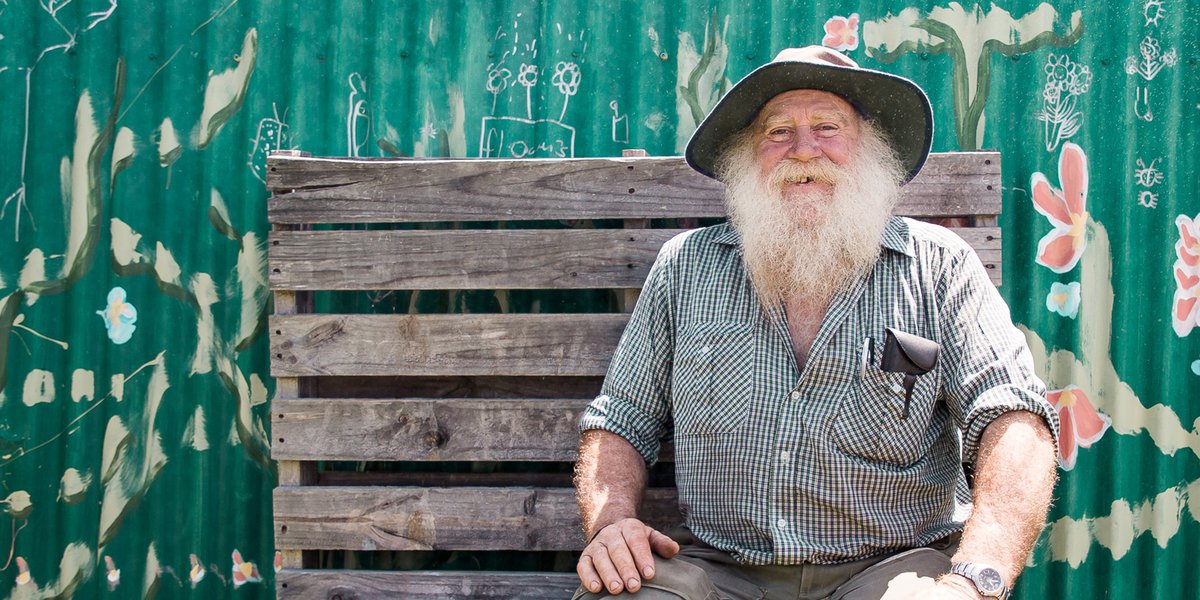Rebekah Cook
"The kids are so clever. They just need that little bit of time or practice, and you're there helping them to get where you knew they could go. You get to play a little part in helping them reach their potential."
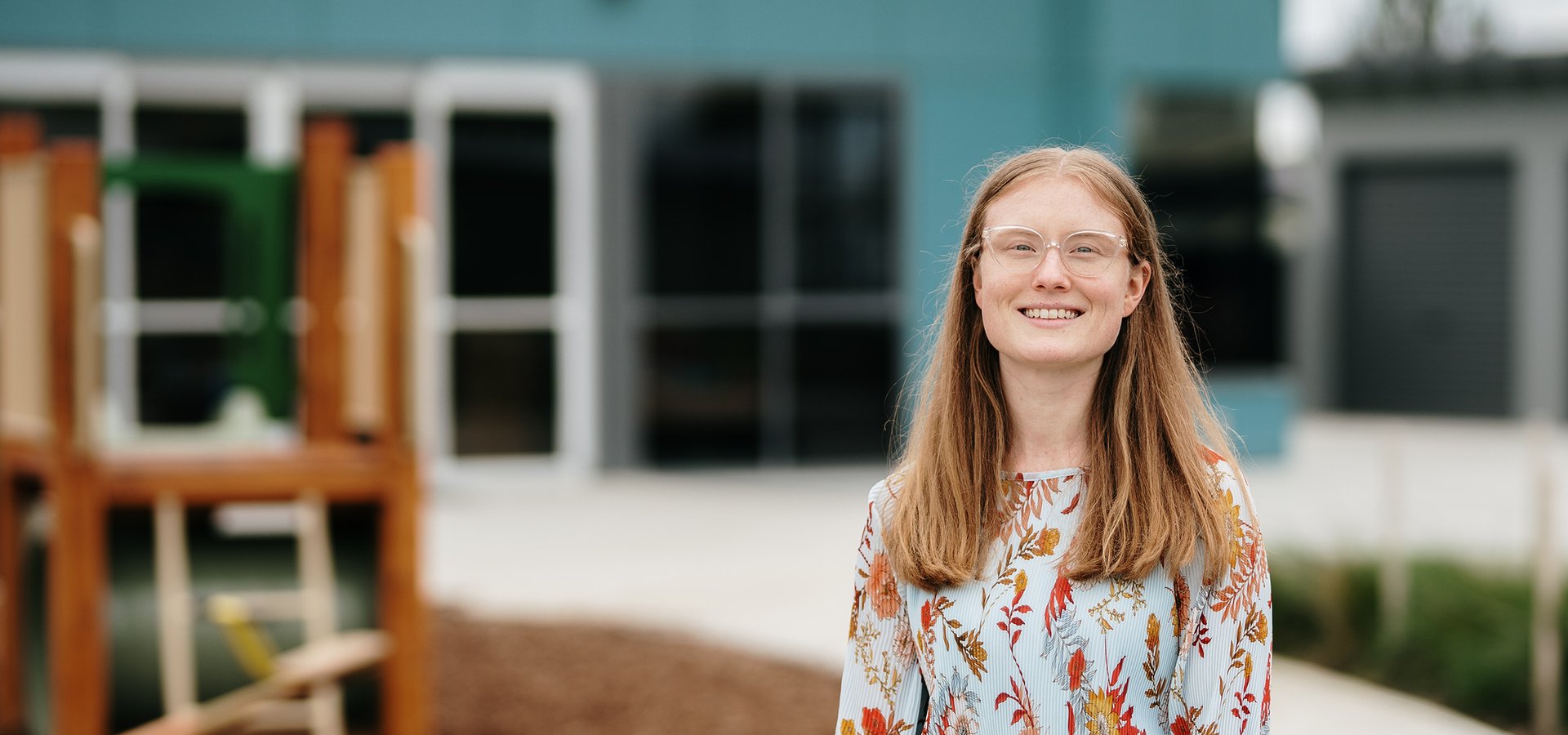
"It’s really suited me, I guess, the work, the lifestyle and the slower place. I would encourage anyone thinking of coming to work in Tassie to just try it out. It’s opened up a very exciting career for me."
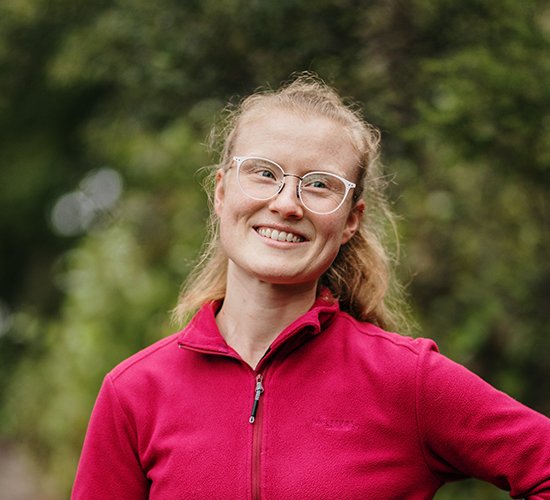
When Rebekah Cook was young, she experienced a difficulty common in many children who are developing their speech skills — pronouncing the ‘r’ sound.
This difficulty is routine in very young kids, but for some, pronunciation continues to be a struggle even as they near school age. Rebekah doesn’t remember experiencing this difficulty firsthand, only the stories told fondly by her family members.
“They tell me I'd say ‘dink’ instead of ‘drink,’” she reminisces now. “And ‘Bebekah’ for ‘Rebekah.’”
What Rebekah does remember is seeing a speech pathologist. At four years old she didn’t quite grasp the specifics of what she was learning, only that sometimes she would see a nice lady who played fun games and helped her make sounds. By the time she started school Rebekah no longer needed to see a speech pathologist, but the experience left a lasting impression.
Her mum was a nurse, and Rebekah was fascinated by her mum’s stories of helping people in the hospital. She began a science undergraduate degree with the intention to move into medicine, but quickly realised it wasn’t the track for her — helping people was important to her, but so was a work-life balance. She was itching to begin work.
“I realised I wasn't quite committed to the study required to be a doctor,” she admits. “A credit to anyone who does, but balance is what I was after. I'd heard really great things about allied health; it's working with people, it's still in health. And speech pathology, to me, seemed like the most interesting. I was quite excited to learn about it, and then blown away by just how much there was to learn.”
Speech pathologists — or ‘speechies’ as they’re affectionally known within the industry — don’t just help children with their ‘r’ sounds. Broadly they’re tasked with diagnosing and helping people of all ages overcome difficulties with communication, including speaking, listening, understanding language, and even eating and drinking.
“I think it's such a great career choice,” says Rebekah. “Because when you start studying it at uni, you might not know exactly where you're going to go. But I think you could surprise yourself with where you end up.”
Rebekah ended up in Tasmania.
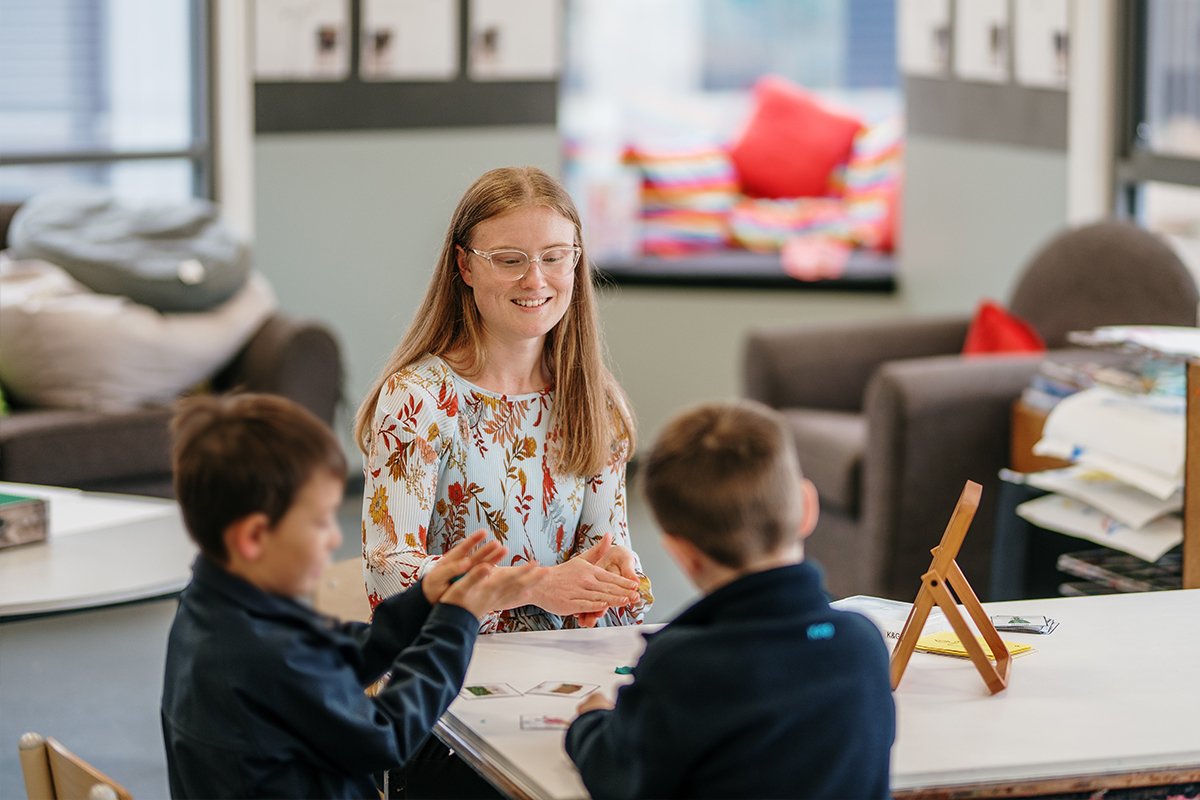
I wanted to travel, but having just finished my degree, I also wanted to use the skills I’d learned. I was looking forward to starting my career. I thought, ‘How do I have an adventure and start my career at the same time?’
Rebekah studied her Masters of Speech Pathology for two years in Melbourne, close to where she grew up in the northern suburbs. By the time she graduated, she felt ready for an adventure.
“I wanted to travel,” she says. “But having just finished my degree, I also wanted to use the skills I’d learned. I was looking forward to starting my career. I thought, ‘How do I have an adventure and start my career at the same time?’”
Rebekah heard about a role in Tasmania. The Department for Education, Children and Young People (DECYP) were looking for speech and language pathologists to work with young kids in schools across the north west. A chance for Rebekah to use her skills in a totally new environment, vastly different to the life she knew growing up in Melbourne’s northern suburbs.
It sounded perfect.
Rebekah had visited Tasmania on occasion as a child, but not quite as far north west as her new role would cover — in schools between Penguin, 130km west of Launceston, and Smithton, on the very far north west tip of mainland Tasmania. Her work base would be in between: Burnie.
“I remember, one of the first things I did was Google ‘Burnie’,” she says. “I learned that it was the fourth biggest city in Tasmania. I saw pictures of the footy ground down by the ocean, and the octopus sculptures at the foreshore. it was very much going into a bit of the unknown. But I was very excited. When I first moved over here I was at West Pine, which is a beautiful farming community up in the hills, and then I ended up moving into Penguin.”
For some people, relocating from a city with a population of over five million to a town of under five thousand could be a bit of a shock. Rebekah took to it like a duck — or penguin — to water. She’d found her work-life balance. “I really enjoy the slower pace and the lifestyle over here,” she smiles. “Living only 20 minutes from work, it saves a lot of time in the morning and the evenings, no traffic. You can fit in a run after work before it’s dark, and there’s this amazing accessibility to so many different, beautiful natural resources.
“It’s absolutely stunning, particularly in the north west. For someone who just started getting into hiking when she moved, I have absolutely loved getting to explore Tasmania. I want to see everything and really get to know it. Once you settle, you see the great opportunities to get to know people in the community.”
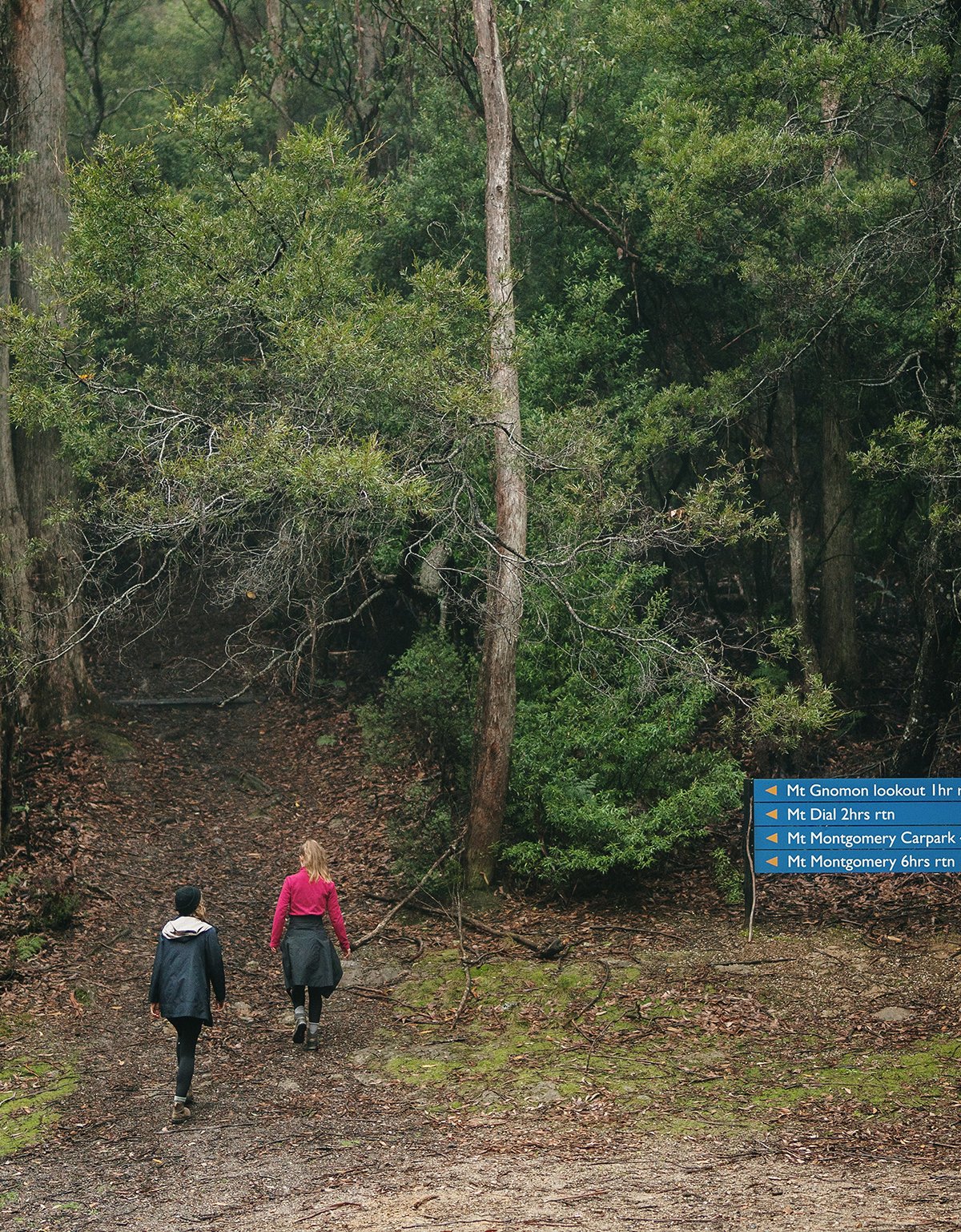
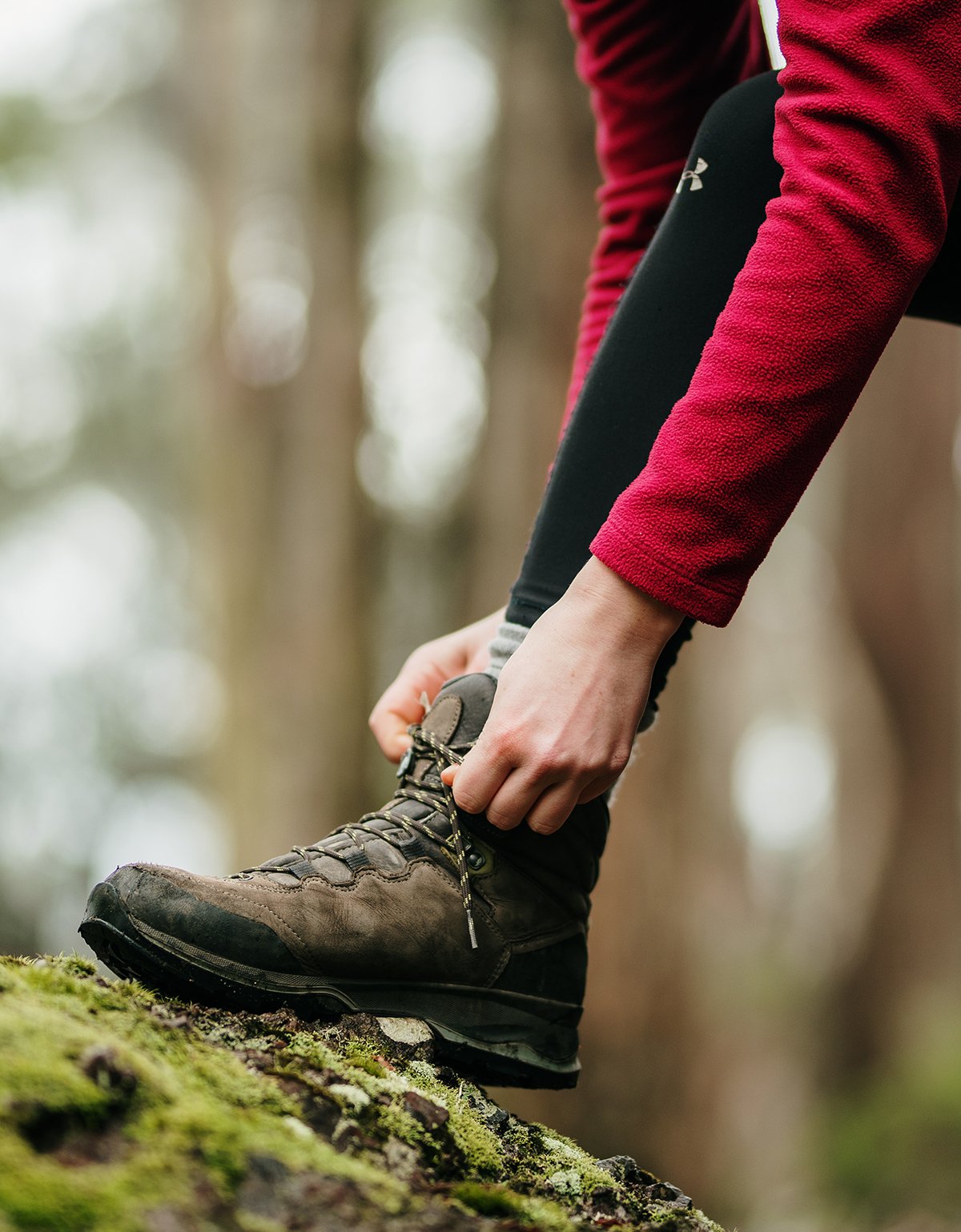
The value of relationship-building has proven extremely important for Rebekah, both in her newfound Penguin community and at work. As a Speech and Language Pathologist working with kids through DECYP, she also works closely with other professionals committed to the kids’ learning and development — teachers, teacher assistants, social workers, principals, psychologists. “The more you build those relationships, the more you understand what their roles look like and what constraints they have,” she says. “You can better collaborate, and figure out, ‘okay, how can we best use the time and the space and the money that we have to implement the things that we know are going to benefit the kids?’”
Working in a small place does have its challenges. In rural and regional areas, allied health roles are often more generalist than specialised, and healthcare workers can end up working with a wide range of needs. This type of lifestyle doesn’t suit everyone, and finding the right people can be difficult.
“We’d love to have more speechies working across the board in Tassie,” says Rebekah. “The more of us, the more we can do. You've got your head across a lot of different things but it’s fantastic for experience, and there are a lot of amazing speechies to learn from at DECYP. The role has been very well supported by more senior clinicians, especially in the beginning when I didn’t have much experience. There’s a culture of all supporting one another, to be able to support those needs that come up.
“The kids are so clever. They just need that little bit of time or practise, and you're there helping them to get where you knew they could go. You get to play a little part in helping them reach their potential. It’s rewarding to see the results that come about through the hard work of the child and their parents. It’s really suited me, I guess, the work, the lifestyle and the slower place. I would encourage anyone thinking of coming to work in Tassie to just try it out. There’s a lot of upside to living here. It’s opened up a very exciting career for me.”

We worked with northern Tasmanian photographer Nick Hanson for this Tasmanian story.
Read about more Tasmanians
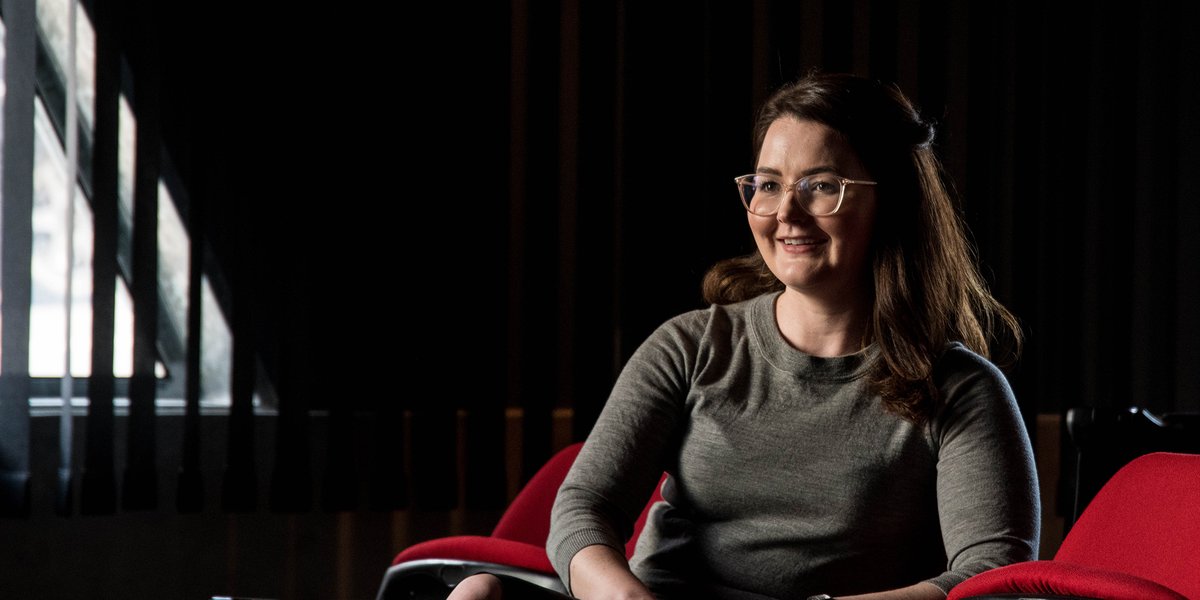
Seana Gall
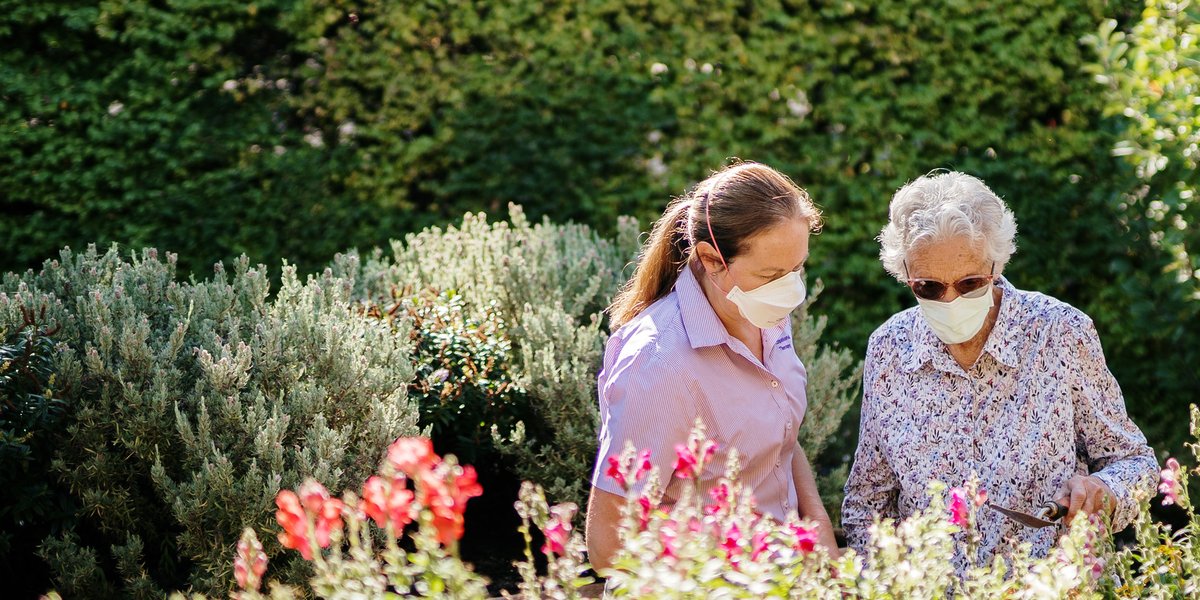
Skye Waddingham
